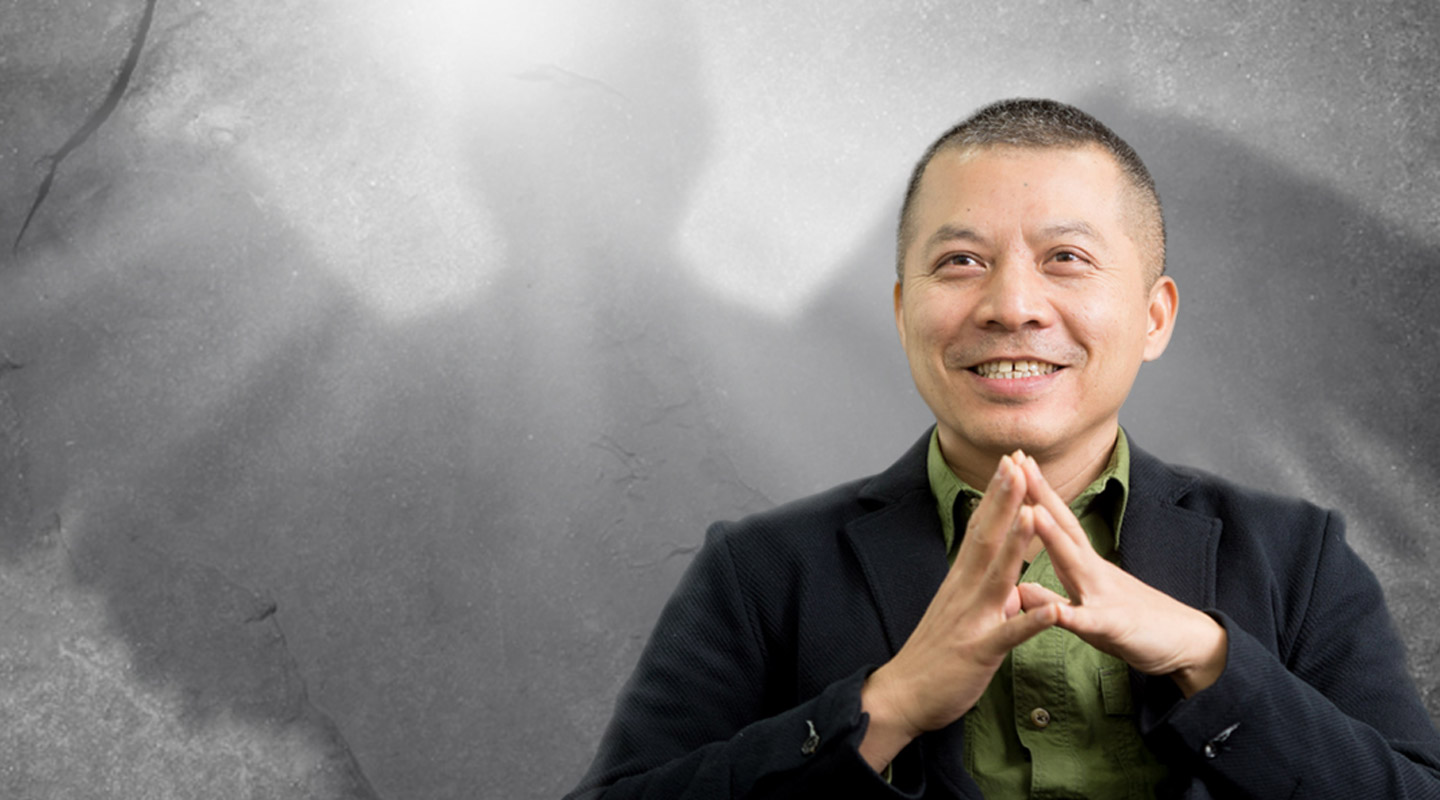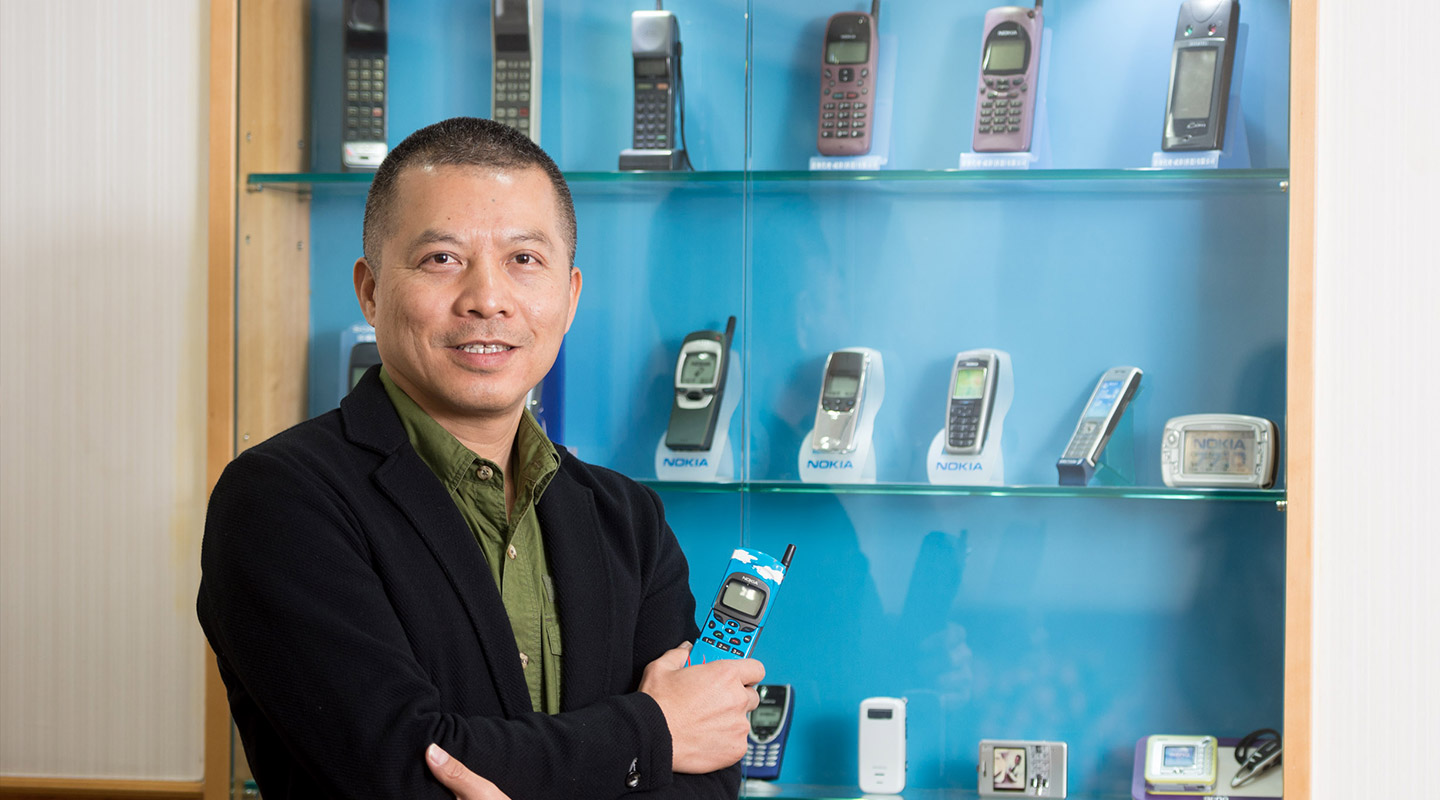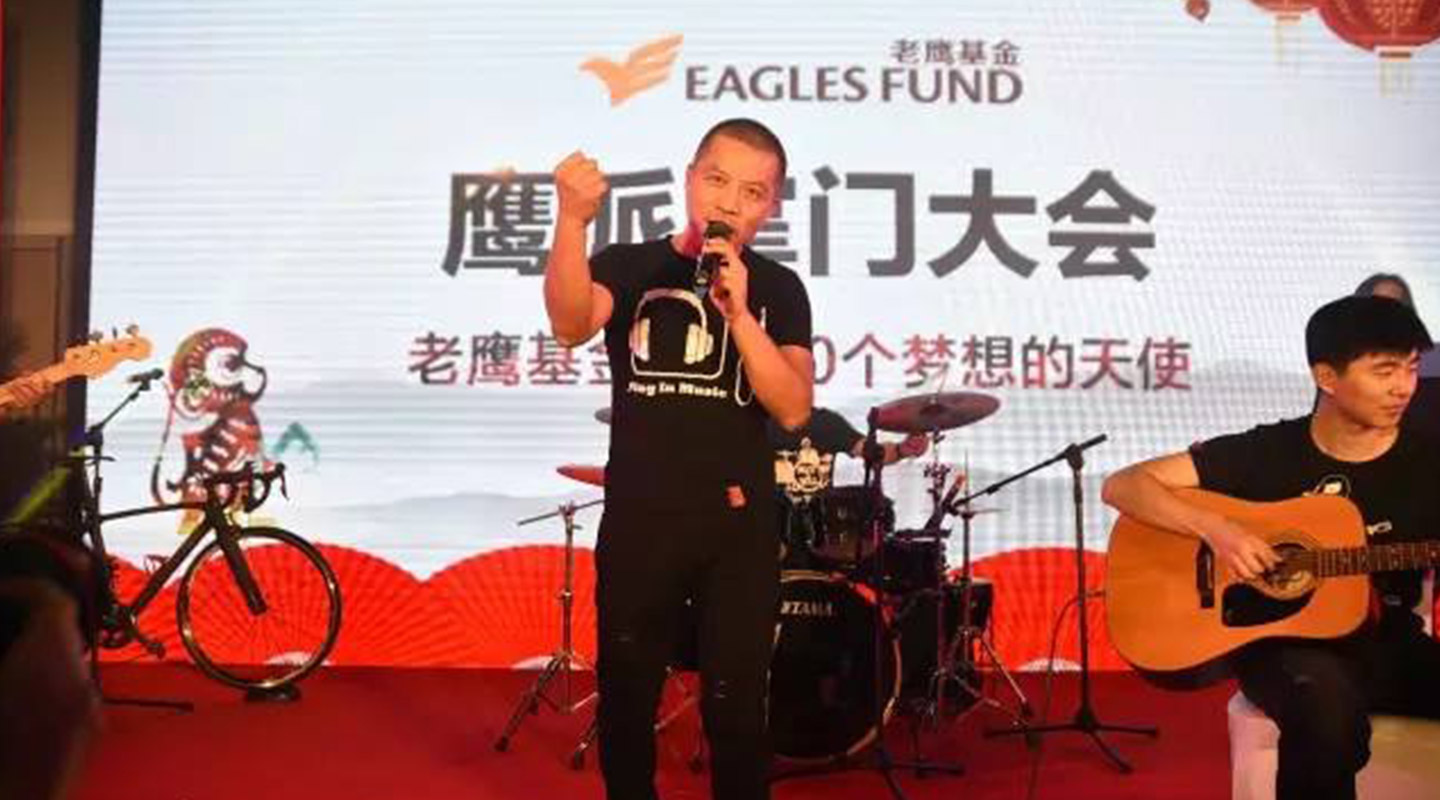Dear readers, With the launch of e-newsletter CUHK in Focus, CUHKUPDates has retired and this site will no longer be updated. To stay abreast of the University’s latest news, please go to https://focus.cuhk.edu.hk. Thank you.
Giving Wings to Dreams
The first person who introduced Nokia handsets to the Chinese market, Steve Lau morphs into an angel investor to empower young startups.

Lau Siu-ying is known to his friends as Steve. When asked whether his English name was inspired by Steve Jobs, he explained it was a mere coincidence that he has been calling himself Steve since his secondary school days. However, it is true that Steve Jobs remains one of his most-admired idols.
In 1993, Steve started a business with HK$200,000 and became the first person to secure the nationwide distribution rights for Nokia products in the mainland Chinese market. Back in the nineties, Nokia handsets were all the rage, much like the iPhones today, where everybody seems to have one in hand. With sales doubling year after year, he took his company public in 2000, which made him the Chairman of China Fortune Holdings Limited. ‘We were riding on a megatrend of mobile telecommunications in that decade. For every Nokia 8810 we sold, we earned a thousand dollars.’
2009 marked a turning point for the cellphone market. The advent of smartphones opened a new chapter in mobile telecommunications history and since then, traditional handsets were fast losing their popularity. ‘Nokia started going downhill. At the end of each month, we had at least 10 million handsets in the warehouse left unsold. Every model was subject to the risk of price devaluation and I was constantly on tenterhooks.’
What made Steve even more disgruntled was that he was in a hurry to clear the inventory every day and missed out on the Internet craze in the early 2000s. ‘In year 2000, when Jack Ma started making forays into the Internet and e-commerce business, I only cared about disposing the remaining handsets in my inventory. I turned down the opportunity of Series A Financing offered by Jack Ma at Furama Hotel.’

Steve did not let the tech craze pass him by. In 2011, he set his sights on the third megatrend—Mobile Internet—and established the Eagles Fund in the mainland the following year. He was transformed from an entrepreneur to an angel investor, dedicated to helping young people to start an Internet-related business.
‘As I get older, it has become tougher for me to start another business due to my limitations in knowledge, physical energy and time. Rather, through my role in angel investing, I can get to know many young people, help them set up their businesses, become their shareholders, provide them with mentorship and use my experience to help them avoid unnecessary detours on the entrepreneurial path.’
Over the past four years, his Eagles Fund has helped finance close to a hundred start-ups; the overall sum invested exceeded RMB200 million and the project survival rate was more than 90%. ‘One of the startups is called Moviebook. We have invested in it for three years and its value has gone up a hundredfold since. It specializes in post-production product placement for videos. When you watch a TV programme or movie online, you might have come across certain props that were actually never there during filming. For example, a sports car or bottle of wine might have been added in on the road or atop the table. These products have been integrated into the show, without anybody knowing.’

Elaborating on the three key attributes that make an angel investor, he said: ‘First of all, you must not be afraid to lose. Once you have invested your money, be prepared to accept losses as losses. Startups do not have the money to pay you back. Secondly, you must enjoy the entrepreneurial process, along with a high-risk, high-returns business mode. Thirdly, you must possess an interest in technology, be willing to learn and understand what you see and hear. Otherwise, you would not even know what you have invested in.’
Steve is adept at organizing his investment insights systematically and shares them with like-minded people. Goggle his name and you can easily find his writings on the web, like ‘The Eleven Techniques of Angel Investing’ and ‘Principles of Evaluating Trends, Projects and People.’
He predicts that the angel investing trend will reach Hong Kong soon. ‘There are many wealthy people in Hong Kong. But the real-estate and stock markets are in a downturn now. Even if they have the money, they do not know where to put it. I plan to return to Hong Kong and set up an Angel Fund, so that investors could have the right channels to invest in startups and budding entrepreneurs could break into the China market with my assistance.’
‘It is my vision to spend 30 years to accomplish 1,000 startup projects. I only have to invest in 33 companies each year and there will be 999 in three decades.’ He labels this plan as ‘The Angel with a Thousand Dreams.’
His second ‘1,000 Dreams’ vision is related to his alma mater, The Chinese University of Hong Kong. ‘I want to emulate Mr. C. W. Chu’s spirit of education sponsorship and help 1,000 grassroots students to pursue further education abroad.’ This CUHK Business School graduate said: ‘I have made a donation to CW Chu College and set up a student exchange scholarship fund. I’ve also written to David Reibstein, the Vice Dean of the The University of Pennsylvania Wharton School and the Past Chairman of the American Marketing Association. He has written back agreeing to the proposed collaboration.’
‘Achieving these two ‘1,000 Dreams’ visions is quite enough for me,’ the 50-year-old Steve said. ‘I have gone through several ups and downs in life. Although I have experienced my fair share of defeats, the path ahead of me is abundantly clear at this stage of my life. My ultimate dream is not to be a super-rich tycoon, but a superb angel investor.’
What is an angel investor?
Usually, an angel investor is a former entrepreneur or professional who provides starting or growth capital in promising ventures, and helps also with advice and contacts. They are deemed to be ‘angels’ in comparison with grasping investors who are termed ‘vulture capitalists’.
Reported by Christine N., ISO
This article was originally published on CUHK Homepage in Mar 2016.